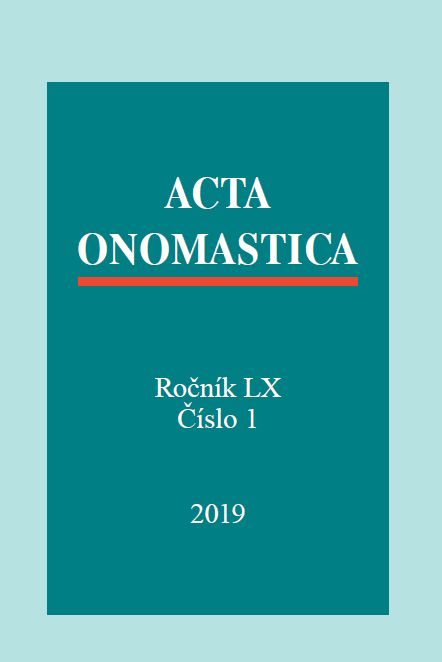Names as covert affirmation of identity: on some propagandistic urbanonyms of the post-war western borderlands in Poland
Names as covert affirmation of identity: on some propagandistic urbanonyms of the post-war western borderlands in Poland
Author(s): Justyna B. WalkowiakSubject(s): Language and Literature Studies, Sociolinguistics
Published by: AV ČR - Akademie věd České republiky - Ústav pro jazyk český
Keywords: hodonymy; ideology; politics; street naming; Western Borderlands in Poland; “Ziemie Odzyskane”
Summary/Abstract: While considerable space has been devoted by Polish scholars to the politically motivatedstreet name changes at turning points in Polish history, especially after WW2 orafter the fall of Communism in 1989, not as much attention has been paid to certainless obvious manifestations of politicizing urban toponymy. Among these, one mayinvoke some Polish post-war street names referring to the Piast dynasty, to Slavicheritage, or to the 1410 victory of the joint Polish-Lithuanian forces over the TeutonicKnights in the battle of Grunwald. The article discusses such street names: specificonyms, their motivation, history and statistics, stressing their prevalence in the so-called‘Recovered Territories’, i.e. pre-war German areas incorporated into Poland afterWW2. Less numerous onyms are motivated by West Slavic tribes and by Slavic versionsof some eastern German toponyms.In contrast with the streets named after Communist party leaders, where the elementof propaganda is easily discernible, the ideological implications of the hodonymydiscussed here are covert; consequently, after 1989 these names usually did not undergode-Communisation. Yet at the time of their bestowal, such names carried a veryspecific ideological load.
Journal: Acta Onomastica
- Issue Year: LX/2019
- Issue No: 1
- Page Range: 138-149
- Page Count: 12
- Language: English

